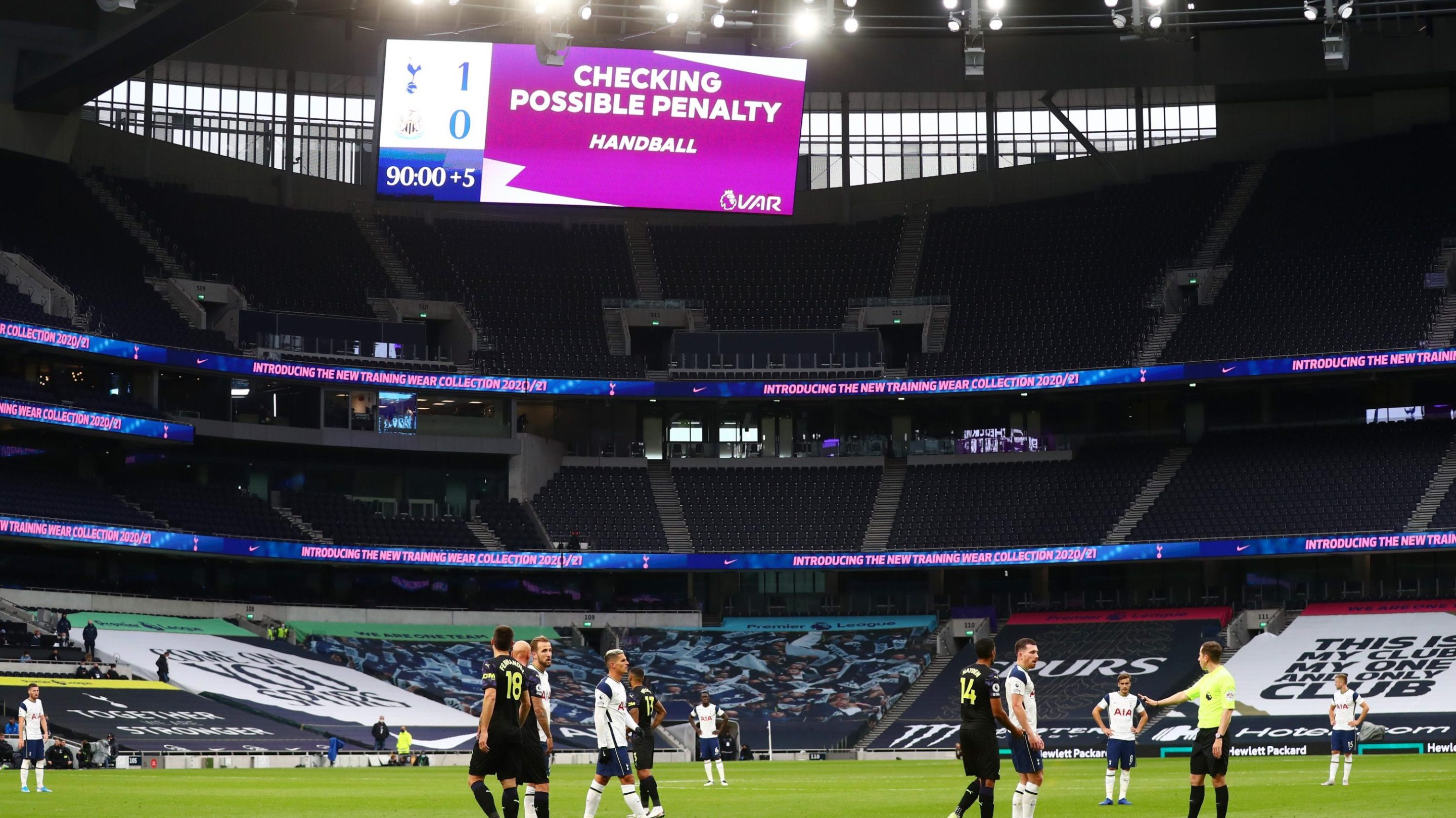Two summers ago, the International Football Association Board, which oversees the rules of the game for all FIFA competitions, changed the handball rule to make it less ambiguous and thus easier to apply consistently. Though well-intentioned, the change arrived just as the Video Assistant Referee was put into wider play across the world, and the pair have conjoined to create some unholy beast that just this weekend was spotted laying waste to the Premier League.
Sunday's Tottenham-Newcastle match featured the abomination's latest and most egregious attack.
By the letter of the new law, which you can find on the IFAB's website, that's a penalty. Specifically, it seems to check this box: "It is an offence if ... the hand/arm has made their body unnaturally bigger." Eric Dier's arm is certainly not in a natural position here, at least not in what "unnatural" has come to mean, which is straight down by his sides. Did he intend to block a point-blank header with his arm? It doesn't appear to be the case, as he's not even looking at the ball. Does that matter at all in light of the new rule? Not one bit.
A similar call swung the Everton-Crystal Palace match on Saturday. Everton's Lucas Digne headed the ball down from point-blank range, where it struck Eagles defender Joel Ward on the hand. Ward's hand was away from his body, though not in a particularly unnatural position, if you consider how human bodies work. In the context of soccer, though, it applied, and after a lengthy VAR check, the spot kick was given and converted, giving Everton the 2-1 advantage that it would carry to the end of the game.
The new handball rule is itself a problem, but it's how the rule is applied in the world of VAR that demonstrates replay's insidious influence. To go back to the Tottenham infraction, the referee did not call handball on the field; it was only on a stoppage for a corner kick that referee Peter Bankes was told to check for a possible penalty. He got it right, according to the letter of the law, and Newcastle tied it up from the ensuing spot kick. According to the logic of replay, VAR was used correctly and led to the correct result.
But the issue is on the epistemological level. VAR purports to be an objective system that is applied to a subjective sport. Some calls are more amenable to objective determinations, like whether a ball crosses the goal line. Other calls, like whether to award a penalty, cannot or at least should not be reduced to a black-or-white objective standard. And by trying to make something like the handball rule more "objective" and thus easier to adjudicate with VAR, you end up with bizarre situations like with Dier's handball where the letters of the law have no connection with the spirit of the game.
IFAB's new rule may eliminate some of the ambiguity of handballs, by taking out the old rule's focus on "intent," but intent should matter for handball penalties. Penalty kicks for fouls in the box are punishments—extremely severe punishments at that—and it is unfair to punish a player or team without taking intent into account. Making handball offenses subject to strict liability, where the only safety from being penalized for doing absolutely nothing wrong is for defenders to do the "natural" thing of acting like their arms are tied down as if wearing a straitjacket, makes the game worse.
The new handball rule has addressed a problem by making handballs much more consistent and also much stupider. It is now easier for a referee to make a handball call and easier for fans, coaches, and players to hate referees because of clearly nonsensical calls. Defending is now harder, the kind of attacking that the game should actually incentivize isn't any easier, and nobody is happier. Yes, everyone will probably get used to this change eventually, the same way people eventually get used to lots of shitty things. VAR remains the cancer afflicting soccer, and rather than serve as a treatment for the disease, rule changes that accommodate replay are only making the sport attack itself like so many white blood cells.






